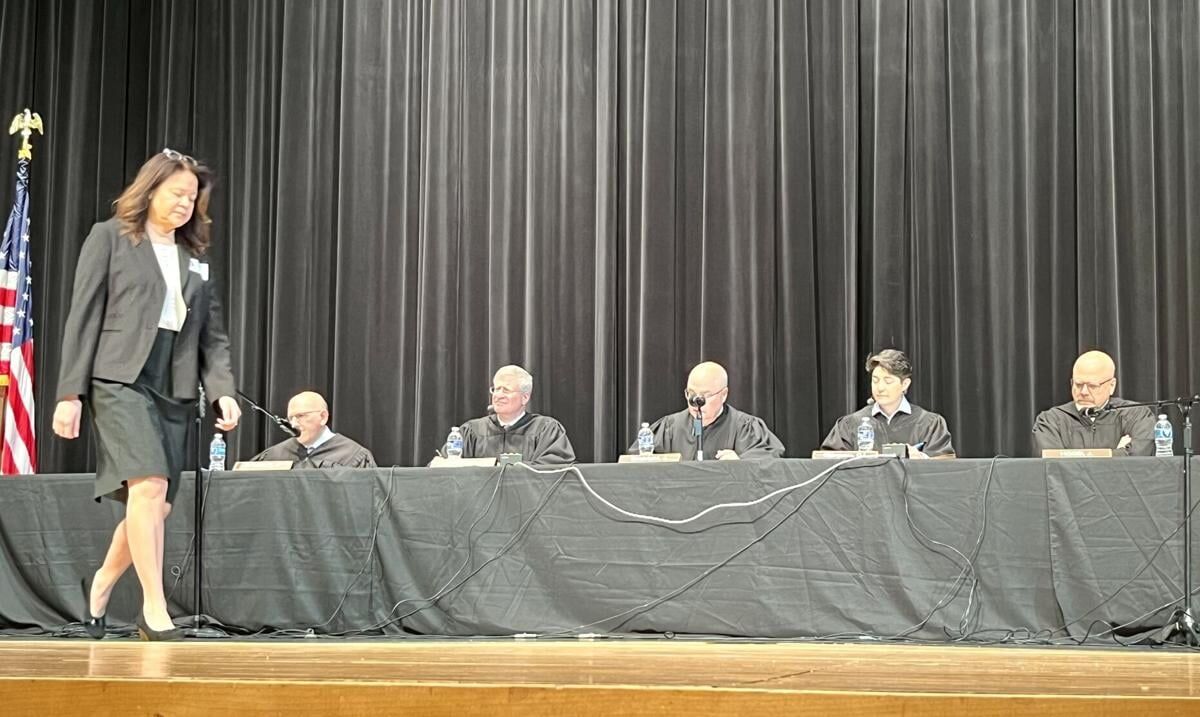Colorado justices ponder scope of law curbing insurers’ ability to allege failure to cooperate

Members of the Colorado Supreme Court pondered a question last week that could have sweeping ramifications for those making insurance claims: When the legislature required insurance companies to take certain steps before accusing policyholders of failing to cooperate in an investigation, do those protections apply to every request an insurer might make?
Leading up to the Nov. 19 oral arguments, the Supreme Court received numerous written briefs from the parties and outside organizations that laid out the stakes of the case. In 2020, the legislature changed state law to limit insurance companies’ ability to assert a failure-to-cooperate defense. Among other things, an insurer has to give a policyholder time to address any specifically identified failures to cooperate in the claim investigation.
Plaintiff Anthony Wenzell and the groups supporting him argued the law captures an insurer’s allegation of noncooperation across the board, including specific obligations laid out in the insurance policy. If insurers could simply argue that a policyholder did not comply with a contractual provision, they could sidestep the protections in the law, while still taking advantage of the failure-to-cooperate concept to prevail in a lawsuit.
The defendants, insurers State Farm and USAA, contended the failure-to-cooperate regulations apply only to the general provision in insurance policies requiring cooperation in a claims investigation. They do not extend to any specific obligations the policyholder has — like providing medical records or submitting to an evaluation. Applying the law’s protections to cover things the policyholder is already aware of would spawn unnecessary legal disputes.
“I have a fair amount of sympathy for the argument they’re making,” said Justice Richard L. Gabriel, referring to the insurers. “Why aren’t they right, that we should take the duty to cooperate on face value? It means the duty to cooperate in the contract versus all these other specific duties.”
And yet, wondered Justice Maria E. Berkenkotter, if insurers do not have to provide written notice and an opportunity to respond when policyholders allegedly fail to comply with a specific contract term, “Could State Farm, for instance, basically start drafting policies that had 100 different duties, trying to cover absolutely everything? And basically making (the law) meaningless?”

In the underlying case, Wenzell was seriously injured in a 2014 car accident. He underwent surgery nearly 2.5 years later and in April 2017, Wenzell’s doctor determined he was healing well. But the following day, a driver rear-ended Wenzell again, causing a new round of injuries.
Wenzell received $100,000 from the insurance company of the driver who hit him, but his estimated damages from the second collision exceeded $2.7 million. Consequently, he sought benefits from his primary insurance company, State Farm, which had a limit of $1 million. Wenzell also pursued benefits from USAA, which provided him secondary coverage up to $300,000.
State Farm sought various documents, including medical records, that Wenzell’s policy obligated him to share. While Wenzell provided some information, he contended other requests were inappropriate or unnecessary to investigate the claim. He filed suit for breach of contract and delay of benefits.
Consequently, State Farm moved to end Wenzell’s lawsuit in its favor, as he had not satisfied the contractual provision. USAA, meanwhile, also moved to end the case, as Wenzell could not recover money from his secondary insurer if he had not gone through the process with his primary insurer first.
An El Paso County judge agreed with the insurance companies, but a three-judge Court of Appeals panel reinstated the lawsuit. It relied on the 2020 law requiring insurers to notify Wenzell of information a “reasonable person would determine the insurer needs” and giving him time to fulfill the request.
“Neither insurer did so here,” wrote Judge Terry Fox for the appellate panel. “The insurer must clearly identify perceived deficiencies, so the insured is given notice — and a deadline — to provide what is needed to evaluate a claim or risk its denial.”
She added that USAA had its own duty to investigate Wenzell’s claim because even if State Farm had granted him full benefits under its policy, Wenzell’s injuries were costly enough to trigger his secondary USAA coverage.

The insurance companies appealed, contending lawmakers only sought to address situations where an insurer alleged a policyholder failed to cooperate generally, without an opportunity to fix the problem.
“When the policy specifically requires the insured to release medical records, however, there is no possible ambiguity about whether the insured must do so. The policy makes the insured’s duties clear,” wrote attorney Katherine C. Yarger for State Farm.
The Colorado Trial Lawyers Association, weighing in on behalf of Wenzell, countered that the legislature heard testimony about insurers reflexively claiming a failure to cooperate, and wanted to protect consumers from denials of claims on minor grounds.
“USAA and State Farm have brought a failure to cooperate defense under another name,” wrote attorney Nelson A. Waneka.
“My question to you,” asked Gabriel to USAA’s attorney, “is when does the failure-to-cooperate defense actually apply?”
“If the defense is, ‘You didn’t return my phone call,’ … that’s a cooperation defense,” responded Evan Stephenson. “The legislature was concerned about the idea that people would retrospectively be held responsible for things they were never asked for.”
Scott F. Anderson, the attorney for Wenzell, countered that failure to cooperate is not a “term of art” and that it simply referred to an insurance company asking for something and the policyholder not providing it. He also argued that USAA, whose policy would pay benefits to Wenzell if State Farm’s payment did not cover the entirety of Wenzell’s injuries, should not “just get to sit back and not investigate” the claim.
Justice Melissa Hart is not participating in the appeal. As is the Supreme Court’s practice, she did not disclose the reason for her recusal.
The case is United Services Automobile Association et al. v. Wenzell.












